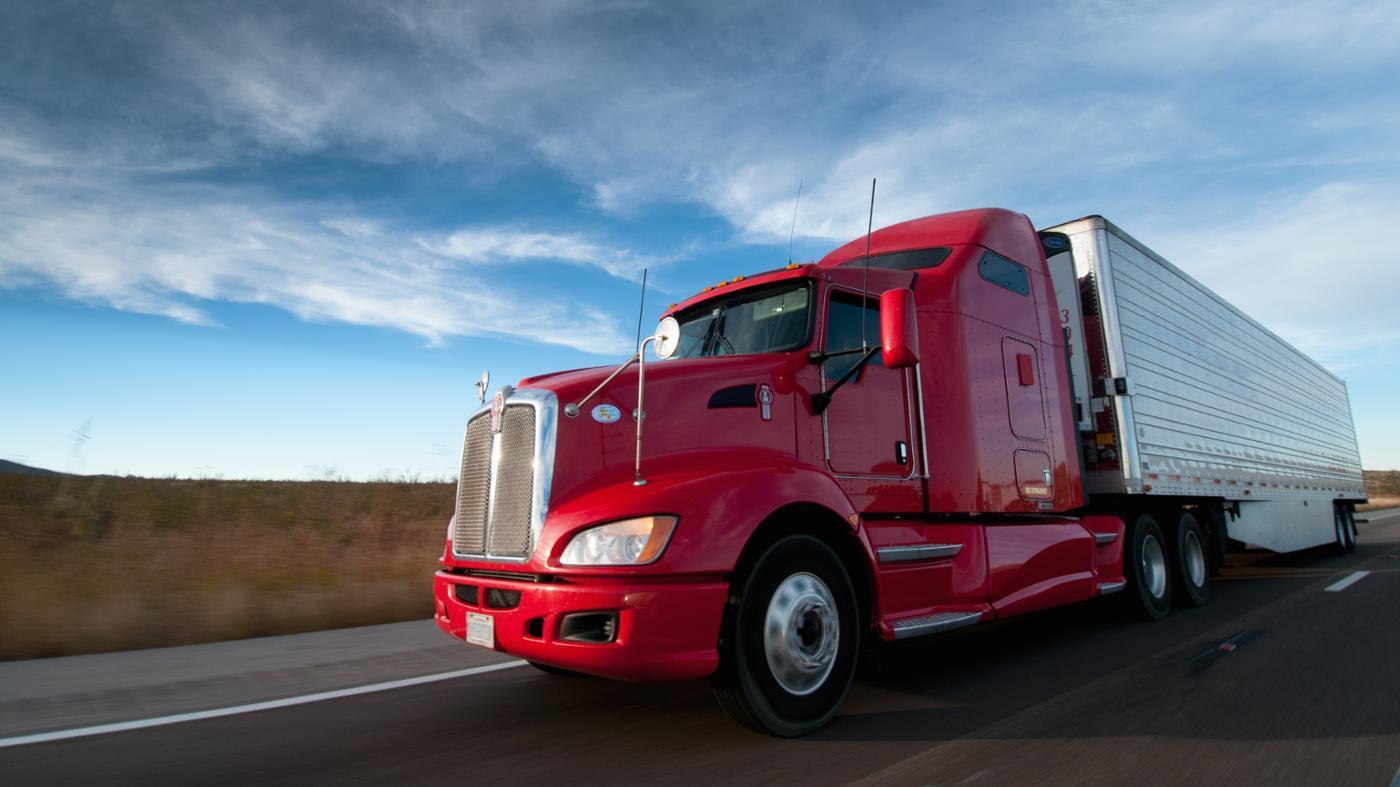Why the Need for Hudson’s New Primary Cargo Coverage
1) Where the Logistics Cargo Insurance Business Now Is
As underwriters for Freight/Truck Brokers, the GTU Logistics Underwriting Team gets to see how the insurance industry responds to freight cargo claims. We get to see how our competitor’s coverage works in a cargo claims situation (or mostly does not work), and we also get to see how our own logistics insurance companies respond to freight cargo claims. While we know our logistics insurance coverage is better than the rest of the marketplace… period (this is corroborated by external coverage attorneys), we are chagrined when there is failure by even our insurance companies to pay a loss.
The insurance industry fails when it cannot meet expectations. In most cases, when an insured files a claim, they are expecting their insurance company to defend and indemnify. When they find out that the policy terms, conditions, warranties and exclusions do not cover that loss, it is a loser for all stakeholders- the insured, their agent, their shipper, their consignee, the MGU, and even the insurance company. One could argue that the insurance company benefits by denying the loss. But it is only a temporary victory as the insured and their agent (if not fired) are looking for coverage that can pay that denied loss in the future. It is just the way it is.
2) Explaining Coverage
When looking at coverages, it is important to understand how they work and who they ultimately benefit. The coverages for contingent auto liability, truck broker liability, general liability and excess liability cover some component of the insured’s legal liability for bodily injury and property damage. They serve to benefit the general public (and ultimately the insured) by paying for losses in instances such as negligent hiring, negligent entrustment, and vicarious liability that the insured would have to pay out of pocket without insurance. It is also worth noting that the insureds have neither the luxury nor the option to self-insure as many (most) of their shipper contracts require the insured has these coverages; so the shipper can hopefully be removed from vicarious liability.
Conversely, contingent cargo, primary cargo, shipper’s interest, and error and omissions coverage are for the benefit of the insured’s customer, the shipper, or the shipper’s ultimate customer: the consignee. Except for shipper’s interest (first party coverage), all these coverages are insuring the legal liability for cargo loss. In the case of errors and omissions, coverage is typically provided based on what happened as a result of that property loss. Our focus today is on that property loss; that is, the cargo claim. It is worth noting that cargo coverage is required by shipper contract, just like the aforementioned coverages for bodily injury and property damage.
3) Cargo Legal Liability Explained
So what is the insured’s legal liability for cargo loss? Are not Freight/Truck brokers absent any legal liability by their authority with The Federal Motor Carrier Safety Administration? The answer is yes. A freight/truck broker is not legally liable by federal authority. And, in truth, it would be great for the freight/truck broker to be able to say to their customer, the shipper or their consignee, in the event of a loss or claim, that we are just an intermediary in the supply chain, and we hope you can work out the claim with the carrier we found for your load. But that is not how it works.
Shippers know that Freight/Truck Brokers are not legally liable by authority. So, as previously mentioned, they hold the freight/truck broker responsible by contract (typically a broker-shipper contract), and require complete indemnification for any and all loss involving a freight transaction that includes the freight/truck broker (irrespective of whether the carrier’s motor truck cargo legal liability coverage responds to that cargo loss or claim). Suffice it to say, they want the freight/truck broker to be responsible for anything involving their freight on carriers hired by the truck broker.. period. Not only is indemnification required but also some form of cargo insurance – and that is why we are discussing this topic today.
4) The Freight Broker Cargo Claims Dilemma
In a typical cargo claims scenario, the freight/truck broker is often assisting shippers/consignees in getting restitution from the carrier’s insurance company, or if that fails, the carrier. So while they are not legally liable from a Federal authority basis, they are legally liable by contract. And in many cases, they can be handling hundreds of loads for the shipper, and cannot afford to have a small carrier or the small carrier’s poor motor truck cargo insurance coverage refuse to pay a claim. It’s simply bad business.
I have often argued that a freight/truck brokers are becoming more and more like freight forwarders, who are legally liable by both authority and by contract to their shipper. While a freight/truck broker will never be liable by authority, the issue is that freight/truck brokers want to be responsible for cargo loss and make their customer whole. With that said, they want to transfer any and all of that exposure to their cargo insurance carrier.
5) Contingent Cargo Explained
So that is where we are. The insured needs to take care of their customer. So isn’t contingent cargo good enough? The answer is yes and no. To understand how it fits for your insured or does not, one needs to look at the insured’s contractual liability exposure to the shipper, and if contingent cargo is going to be there in most, if not all cases. Unfortunately, frequently contingent cargo insurance is not enough.
So what triggers contingent cargo? Two things. One is the failure of the carrier’s motor truck cargo legal liability insurer to pay for loss. The second is failure of the carrier to pay (in cases where the carrier’s insurance first failed to pay). Typically most insureds have a broker-carrier agreement that requires the carrier or carrier’s insurance to pay for any and all cargo loss and indemnify our insured. Sounds good, right? Wrong. While the carrier may have motor truck cargo legal liability coverage, neither our insured nor the industry, have any idea as to the quality of that coverage. Does anyone know the terms, conditions, or exclusions of the policy? Nobody is getting that information from a certificate of insurance (the certificate of insurance is a failure again of the insurance industry but that is another subject). Is it a specified auto policy? Does it cover employee fidelity? How about refrigeration breakdown or the driver simply set the wrong temperature? Or unattended auto? Or imposter theft? Or are there commodity exclusions? How about wetness excluded? Coverage for adulteration? How about broken seal? What happens if the trucker is not legally liable due to Carmack provisions such as acts of God? Is our insured liable for all these types of losses to the shipper? Probably. The shipper indemnification provisions in the broker-shipper contract do not exempt the insured from these losses. Sound like a recipe for failure? You bet.
And to add insult to injury, most insurance policies exclude contractual liability, which is the whole reason freight/truck brokers are buying insurance in the first place. Why do they do that? Because they do not want to insure lock, stock, or barrel, any broker-shipper contract per se. They will add shippers as additional insureds or loss payees but they do not want to have their insurance policy expand coverage to whatever liability is in that broker-shipper contract. Not very helpful, is it? The answer is no it is not helpful at all.
So back to contingent cargo. We have discussed coverage triggers, but what is it designed to do? While an insured could be furnished with a bogus certificate by the carrier, the main exposures are twofold: DIC (Difference in Conditions) or Excess Coverage (not enough limit to pay for the cargo loss). Difference in conditions would seem to be perfect coverage, if there were not terms, conditions, and exclusions preempting claims payment. One of the biggest examples we see is the refrigerated food sector, where refrigeration breakdown coverage is provided by both the carrier’s motor truck cargo (MTC) legal liability policy and our insured’s contingent cargo policy. Sounds okay doesn’t it? Well, it is not. When the driver sets the temperature wrong and the freight is rejected, the carrier’s MTC policy does not respond as there was no refrigeration breakdown, and the same holds true for the insured as their contingent cargo coverage does not respond for the same reason. Is the broker still liable to the shipper per the broker carrier agreement? You bet. DIC did not respond here. What about cases where the insured is not told the full value of the load by the shipper; the insured is responsible contractually to the shipper for cargo loss and claim, and it turns out the loss was $150,000, but the carrier only has $100,000 in limits and the insured has a $250,000 limit on your contingent cargo policy. All good here to pay the difference right? Wrong. All contingent cargo policies require the insured to require the carrier to provide a COI for the value of the load. Absent of that, coverage does not trigger. So the insured will be left to fund $50,000. That cannot happen often or the insured is out of business.
6) Discussion of Freight Broker Claims Handling Practices
Another issue that is problematic is claims handling, By the time the loss gets to the contingent cargo insurer, everyone is unhappy that the claim has not been paid. And the claim may have not triggered contingent cargo coverage yet. There may not have been formal denial by the carrier or the carrier’s MTC insurer that the claim has been denied. It was noted that a customary part of freight broker services to their shipper customer is claims remediation services. That is natural, since the broker placed the load with the carrier, vetted the carrier, has a broker-carrier agreement with the carrier, has a certificate of insurance from that carrier’s insurance agent, it makes sense that they help in the loss. But the insured’s contingent cargo insurer may not be working on the same basis as the insured to remediate the claim, especially if coverage has not been triggered.
Note it is worth saying that contingent cargo pays plenty of freight cargo claims where the carrier’s insurance company has denied the loss. With that said, based on the aforementioned analysis, it is not a perfect solution. While it is inexpensive relative to cargo or shippers interest coverage, an insured can be left without assurance (in the event of denial of a MTC claim by the carrier’s insurer) that their contingent cargo insurance is going to show up. Again, we see most of our competition writing contingent cargo that doesn’t pay for contingent cargo claims. We, at GTU, want our insurance companies to be there for our insureds, but it cries for a better insurance product.
7) Coverage Solutions- Primary Cargo Coverage for Freight Brokers
So who is doing it well and what is a solution? Probably the best insurance company we see in our space handling cargo loss is our TT Club package program. TT Club is an odd company that provides an indemnification solution to all its lines of coverage (as opposed to a pay on behalf situation). Why does this work? As previously mentioned the insured needs to be a part of the claims solution and provide the customer service and attention needed to fulfill the promise of good service, which is what freight/truck brokers sell. So TT Club works with the insured through the claims process, mitigates loss, and then reimburses the insured less the deductible for the loss. But that is not the biggest issue. The most important aspect is coverage is Primary Cargo Coverage. Do not get me wrong, TT Club hopes, like any contingent cargo insurer would, that the carrier or the carrier’s insurance will step up and pay the loss. But if there is a problem, they immediately allow the insured to step in on a Primary Basis. That saves the freight/truck broker’s relationship with the shipper. They will, like any insurer, require an exhaustion of recourse against the carrier, but will indemnify for loss and then subrogate back against the carrier and/or the carrier’s MTC insurer. That is what is needed. So again, even though the insured is not legally liable as a freight broker, they are legally liable by contract (almost like a freight forwarder). They have a Primary responsibility to the shipper which is why Primary Cargo is needed.
So if TT Club is doing it well, why is there the need for another insurer in this space? Well, with our friends at Hudson Excess Insurance Company, there is an opportunity to make a good product better. So we are pleased to announce Hudson’s Primary Cargo Coverage which will offer other perks in consideration of the package policy that other insurance companies cannot offer. One of the shortcomings of TT Club is that defense is covered within the limit so it becomes a “wasting limit” policy. With Hudson, defense is outside the limit which is an obvious benefit. What else? Hudson will offer the same indemnification primary cargo insurance, allowing the insured to assist in settling claims and then be indemnified. But the other coverages that Hudson offers will be on a “Pay On Behalf” basis. We think this is better in that aside from the aspect of defense that this again in addition to the limit. Also, if there is an unfortunate catastrophe bodily injury claim, the insured is much better off not being on an indemnity basis. So Hudson has given the industry what we feel is needed and married insurance programs that offer the best of both worlds.
So what about coverage?
8) Freight Broker Primary Coverage Explained
The normal coverages are provided like defense and approved recovery and mitigation expenses. In addition to that, coverage is provided for claims that are normally not covered such as claims caused by non-compliance with the US Food and Drug Regulations relative to food transport and temperature change. How about broken seal coverage (a claim that must be turned in promptly)? Covered. How about exclusions? Does it exclude carrier employee fidelity? Nope. How about excluding refrigeration breakdown or the driver simply set the wrong temperature? Nope. Or unattended auto? Nope. Or imposter theft? Nope. Are there commodity exclusions? Very limited commodity exclusions. How about wetness excluded? Nope. Coverage for adulteration? Yep.
Is it more expensive? You bet. The loss cost of not excluding everything that ends up being denied by contingent cargo makes it necessary to get more premium. But it is what the insured needs. Note that many shippers (we understand Walmart is one of them) are requiring primary cargo coverage versus contingent. They are requiring their freight/truck brokers to have the primary insurance responsibility within the contract. Hudson Primary Cargo offers the insured the opportunity to be the value added they need to be to their shipper customers while still offering the necessary pay as you go on other lines.
Is Hudson Primary Cargo perfect and could claims and losses still be denied? Sure. But it is the best product we have seen when writing all the necessary freight brokerage coverages.
So what else is needed to get a quote for Hudson Primary Cargo? Unlike Contingent Cargo which is written just on revenues, we need the following:
9) Primary Cargo Supplemental Underwriting Information Required
- Complete financials. Audited financials get a premium credit (note we can indicate but we cannot quote without complete financials)
- Shipper list
- Commodity List and the percentages of each commodity hauled
- Average and maximum value by commodity
- Largest shipper contract
With that, GTU will be able to get you what the insured needs. We hope you and your insured will appreciate the Hudson Primary Cargo Coverage for our Logistics insureds.
One final note, unlike the rest of the marketplace, GTU will offer the options of contingent cargo and primary cargo going forward when it makes sense. So it gives the insured the option to either look at lower premium or better coverage. We will always be an advocate for better coverage. It is simply what the industry needs and presently does not have.








